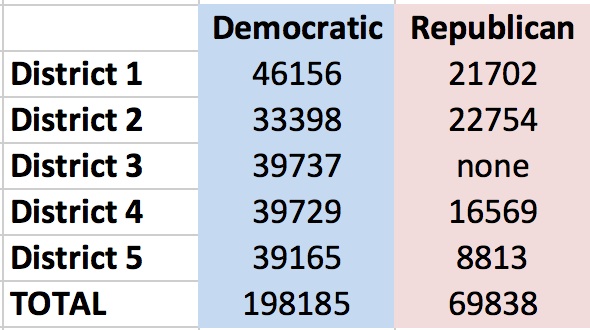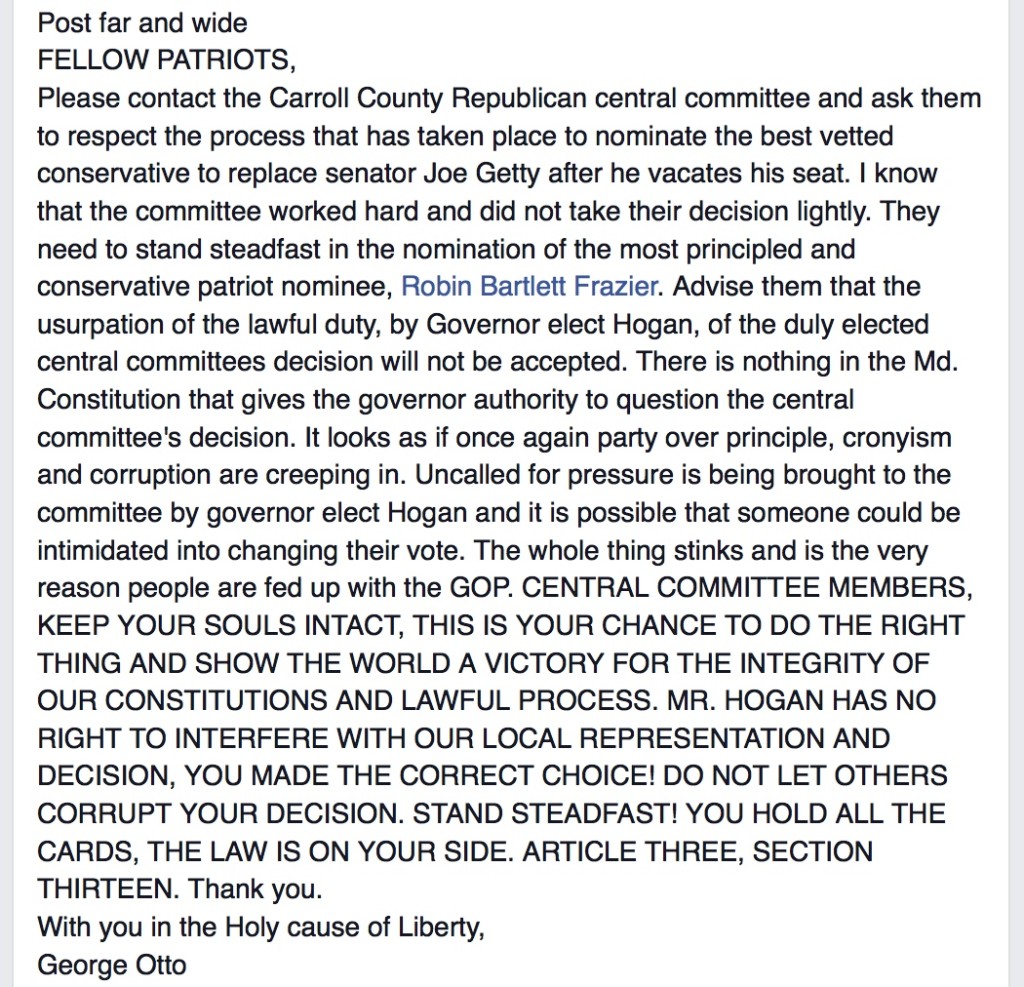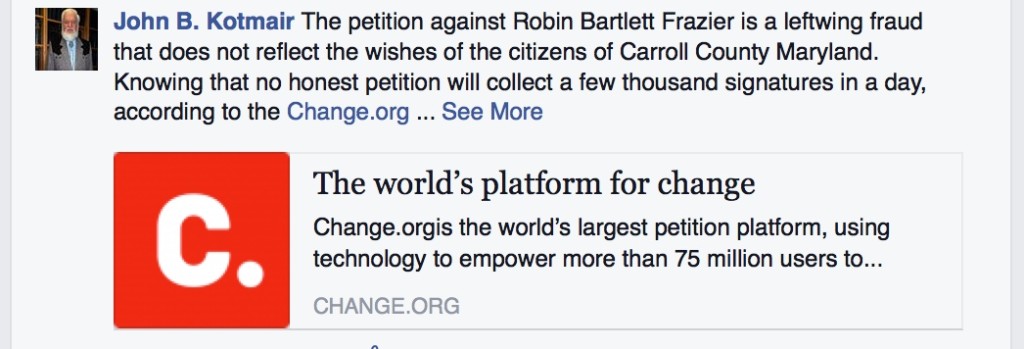
As previous posts have highlighted (here, here, and here), Democrats dominate Montgomery County elections with vanishingly small hope for Republicans. They don’t even bother to field candidates for a majority of the seats.
While Montgomery Democrats may cherish Republican-free Montgomery, it creates other problems for democratic governance. Relatively few people actually elect the Council. It is difficult to hold officials accountable when there is essentially no viable “out” party. It increases factionalism on the Council and makes it easier for councilmembers to shift positions without consequence.
This post suggests two reform methods, one simple and one more radical. The key to assessing any reform is to examine not just how it affects fairness or representation but also governance. While fairness is great, one needs to keep in mind the impact of changes on other aspects of our democratic system.
The first reform is very straightforward: abolish all of the at-large seats except one and increase the number of districts by three so the Council remains the same size. This change would reduce the ratio of constituents to councilmembers from roughly 200,000 to 125,000, the same as the state legislature, and make it easier for constituents and councilmembers to keep in touch.
The at-large member could be the council chair, eliminating the jockeying for this visible post. Alternatively, all of the members could be elected from districts and continue to select the council chair from among their membership.
Advantages of this reform include a reduction in the cost of campaigns. Districts would be smaller so candidates would have to spend less money to campaign in them, possibly making it easier for less well-heeled candidates to enter races.
Opponents would argue that it eliminates councilmembers who take the whole county into account. But all councilmembers have their bases of support and three out of four at-large councilmembers currently hail from Silver Spring. Upcounty and West County folks might welcome additional representation in Rockville.
The real disadvantage is that it might leave us in much the same boat as now. It is virtually impossible to draw a Republican district in Montgomery, so we’d still have a single-party council with no representation of the permanent “out” party.
The second reform would address this issue. Voters would cast ballots just as now in the five districts. The votes in these districts would then be aggregated to distribute the remaining four at-large seats such that the overall allocation reflects this total, taking into account the number of district seats won by a party.
An example helps to illustrate. Suppose that the general election results fell on the following lines:
 Democrats would win all five districts and receive those seats immediately. The allocation of the remaining four seats would occur in a manner designed to produce a proportional distribution among all of the seats.
Democrats would win all five districts and receive those seats immediately. The allocation of the remaining four seats would occur in a manner designed to produce a proportional distribution among all of the seats.
In this simulated election, Republicans received 26% of the vote. A proportionate allocation would award the Republicans two of the nine total seats (at least based on the Ste. Laguë method of PR which I used here since it is considered very fair). As a result, the Republicans should receive two of the four at-large seats with the others going to the Democrats for a 7-2 Council.
This reform would have several positive consequences. First, it would encourage the Republicans to regularly run candidates for all district seats, increasing the political competition vital to democracy. After all, the Republicans might have garnered a third seat if they had run a candidate in District 3.
Additionally, it encourages all parties to work to increase turnout even in safe seats to make sure that they win as many seats as possible. In short, it eliminates advantages gained through winning seats in low-turnout district elections. This might even augment Montgomery’s influence in statewide races as we increase our relative voter muscle compared to the rest of the State.
This change would also create a majority and minority party in Rockville. Voters could thus reward or punish the performance of each party, increasing accountability, even if the Democrats continue their overall dominance. Parties instead of Democratic factions would help give coherence to Montgomery politics.
Critics would likely contend that it emphasizes party at the expense of candidates. First, let’s be up front and acknowledge that few county residents can identify many of their councilmembers and certainly do not know enough about them to make particularly informed judgments.
Second, candidates would still be very important as each party would want to run its most attractive candidates in order to increase its overall vote. Smart Republicans would want to nominate relative moderates to maximize their vote.
Of course, neither reform seems likely to be adopted. Incumbents love the status quo because, after all, it chose them. And I cannot say that I especially blame them. People in all walks of life like to keep their jobs and systems that work for them.








